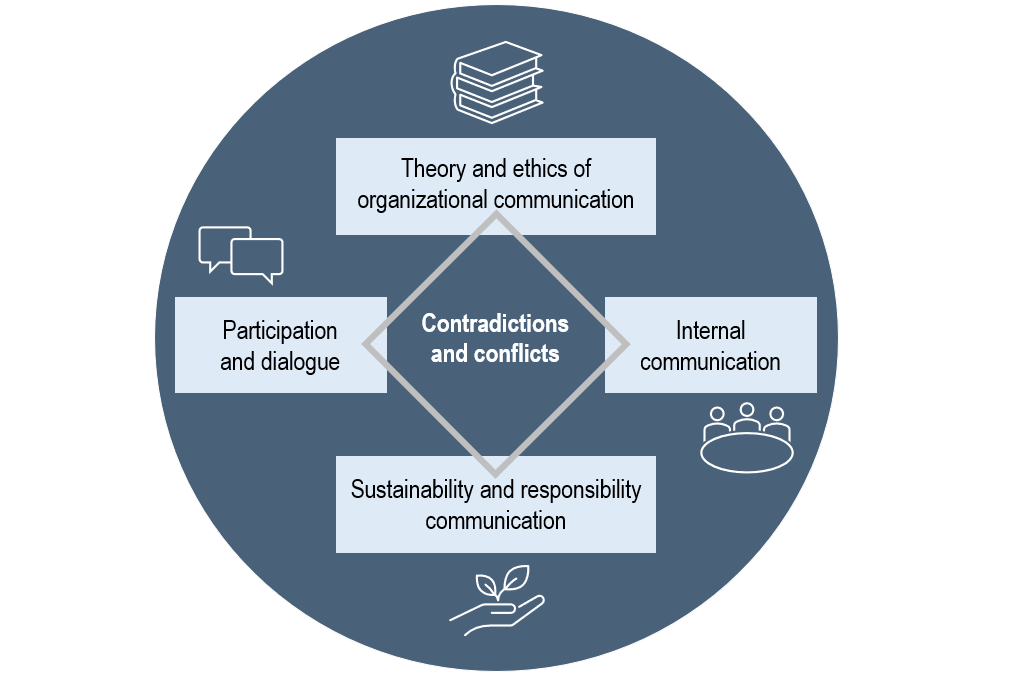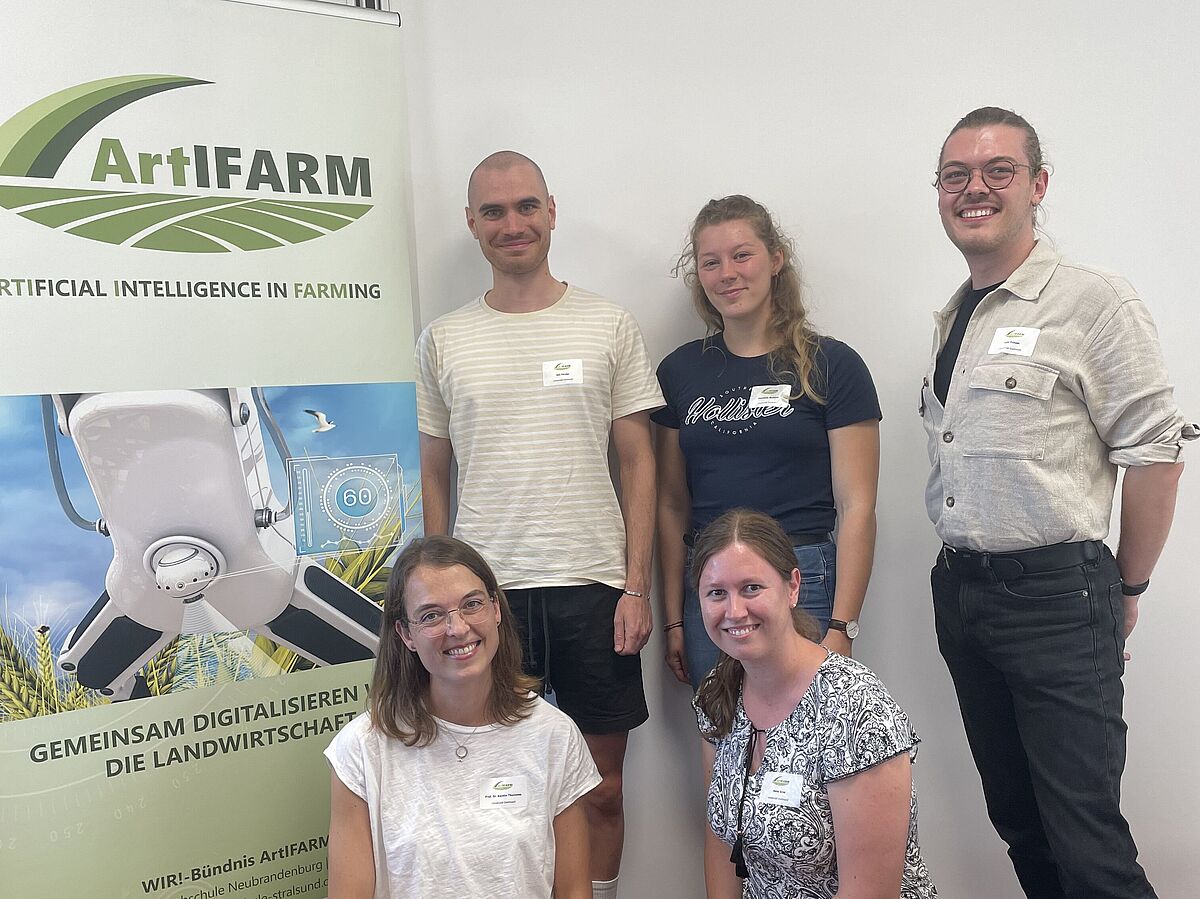Chair of Communication Studies with a Focus on Organisational Communication
The Chair’s research projects and seminars investigate organisational communication from a societal perspective. The goal is to analyse communication problems that occur at the interface between organisations and society and to develop research-based approaches for dealing with these problems. Critical reflections on the responsibility of organisations and communication professionals are central to this focus.
Organisational Communication in Greifswald follows an integrative approach. It takes into account:
- internal and external, interpersonal and public, formal and informal, strategically planned and uncontrolled communication processes
- economic, political, and social organisations
- modern, symbolic, postmodern, and critical theoretical perspectives
The working group's research focuses particularly on contradictions and conflicts between expectations, interests, and values in organisational communication.
In ongoing projects, this subject of investigation is examined from four research perspectives (see illustration).
A common research focus is on the analysis of organisational communication in societal transformation processes. It connects the following projects: Moral Practices of Public Affairs (DFG), ArtISTRAT (BMBF), Communicative Factors in Socio-Ecological Transformation Processes (doctorate Milena Hödt), Protest Communication of "Land schafft Verbindung" (doctorate Anna Gros), and the “Victory at any Cost in the Communicative Battle for Climate Justice” (doctorate Carla Koppe).
In teaching, the chair's team covers the full scope of communication from, in, and about organisations. This includes campaign communication, public affairs, internal communication and organisational culture, reputation and stakeholder management, relationships with media and opinion leaders, online discourses with and about organisations, responsibility and risk communication. Staff members primarily teach courses for the master's degree in Organisational Communication, but also for the bachelor's degree in Communication Studies.
Contact
Manuela Dittmann
Office
Ernst-Lohmeyer-Platz 3, 3rd Floor, Room 3.04
Tel.: +49 3834 420 3402
kowisekruni-greifswaldde
Doctorate
The Chair supervises doctorates in the field of organisational communication. Find out more here [de]
Funded research
Selected Publications
Ph.D. and Postdoc Projects
Protest communication of "Land schafft Verbindung"
In her thesis, Anna Gros wants to analyse the association "Land schafft Verbindung" (engl.: land creates connection) in its public protest communication. Since October 2019, the association has organised itself into splinter groups across Germany via social media and attracted public attention with tractor caravans. Among other things, the negotiation of the concept of sustainability plays an important role in the analysis, which can be seen as a conflict between rural and urban populations from an economic, ecological and social perspective.
Participatory Research on Organisational Factors of Successful Transformation Processes in Civil Society
In her thesis, Milena Hödt explores the question of which communicative factors inhibit or promote socio-ecological transformation processes within and emanating from civil society organisations. To uncover communication potentials for changes in the sense of a socio-ecological transformation, the perspective of critical organisational communication theory is adopted. This perspective makes it possible to focus on how social conditions, particularly unsustainable social grievances, are communicatively established within organisations and can consequently be changed towards social sustainability. Building on intersectional theory, this analysis deepens regarding the influences of the social constructions of race, class, and gender on organisational communication in discourses, social interactions, and participatory opportunities. The theoretical insights are examined and enriched through practical expertise from backcastings and subsequent guideline interviews.
Between a rock and a hard place: competing demands, paradox, and complexity in organisational communication
In his thesis, Timo Lenk explores the social dynamics of competing interests and demands organisations face in complex societies. Drawing mainly on paradox research and complexity theory, the resulting tensions and their manifestations in organisational communication are examined. Based on expert interviews with communications consultants, organisational approaches to communicating under such conditions and dealing with arising conflicts are discussed. Overall, approaching the social complexity of competing demands from a communicative perspective promotes mutual fertilisation of paradox research and organisational communication.




